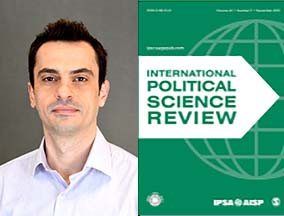
Paris Aslanidis, lecturer in Political Science, has an article in the International Political Science Review entitled “Coalition-making under conditions of ideological mismatch: The populist solution.”
Abstract:
“This article problematizes how non-spatial factors facilitate the formation of extraordinary ideologically mismatched government coalitions. An intensive case study analysis of the SYRIZA–ANEL governments in Greece (2015–2019) suggests that a shared symbolic discourse directed against mainstream contenders allowed elite actors with widely disparate programmatic commitments to circumvent rigid constraints imposed by minimal range theory. Under conditions of acute polarization and socioeconomic upheaval owing to the Greek sovereign debt crisis, a strategic use of populist anti-bailout discourse upset the usual order of party competition along spatial dimensions, fostering cross-ideological cohabitation at the executive level between the radical-left SYRIZA and the radical-right ANEL for a total of four years. However, an office-seeking approach based on a populist symbolic framework to represent salient grievances cannot fully eliminate policy dissension. Once core ideological commitments become explicitly challenged, inelastic policy-oriented factions and voting blocs may ultimately precipitate the expiration of the populist coalition.”